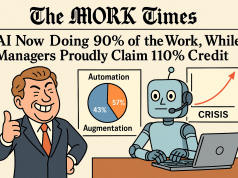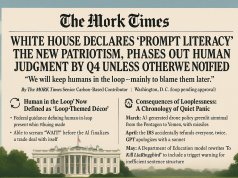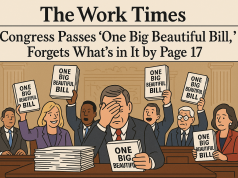In the tapestry of today’s labor market, a pattern has emerged that’s impossible to ignore: the Great Resignation. Like a wave sweeping over familiar shores, this movement has transformed the landscape of employment, careers, and the very essence of the workplace. With record numbers of individuals departing from their roles, the workforce is witnessing a seismic shift in the way careers are perceived, pursued, and perfected.
For those caught in the crux of such change, the quest for greater fulfillment, balance, and purpose has become the catalyst for reevaluation and reinvention. As we dissect the driving forces behind this exodus, it becomes clear that the pandemic’s profound impact on life priorities, combined with a deeper understanding of what it means to be fulfilled at work, have brought us to this juncture.
But how does one navigate this tumultuous terrain? The answer lies in a strategic approach to career transitions. Personal branding has never been more crucial than in a market that prizes authenticity and uniqueness. It’s about crafting and conveying your professional narrative in a way that resonates with your desired industry or role. Leveraging social media platforms, engaging in thought leadership, and showcasing your skills can create a magnetic presence that attracts the right opportunities.
Continuous learning is the lifeblood of adaptability. In an environment where industries evolve at breakneck speeds, keeping your skills sharp and your knowledge current is not just a recommendation—it’s a necessity. This could mean formal education, online courses, or self-directed study, whatever it takes to stay ahead of the curve.
Networking, the age-old practice of building professional relationships, has taken on a new form in the digital age. It is not about collecting contacts; it’s about cultivating meaningful connections that can lead to mutual growth and opportunity. In the age of remote work and virtual meetings, the ability to network effectively online has become a critical asset.
The implications of the Great Resignation for the workforce and workplaces are profound. We are likely to see a greater emphasis on work-life balance, mental health, and employee engagement. The organizations that will flourish are those that view their workforce as a community, nurturing talent and fostering an environment where innovation and wellbeing are in harmony.
From an organizational standpoint, this era calls for a renewed focus on retention strategies. Employers must listen more intently to employee needs, offer flexible work options, recognize performance, and invest in their teams’ professional development to maintain a competitive edge.
To our valued readers of The Work Times, as you stand at this crossroads of change, we offer you actionable advice to master your own career transitions:
– Reflect on what truly motivates you and seek opportunities that align with your values and passions.
– Build your personal brand with intention, and let it be a true reflection of your professional ethos.
– Commit to lifelong learning, and remain curious and open to new experiences.
– Forge connections that are not just professional but also personal by adding value to your network.
– And finally, approach each career decision with mindfulness, considering not just the immediate benefits but also the long-term impact on your life and career trajectory.
Embarking on this journey may not be easy, but it is undoubtedly necessary for those who seek more than just a job—those who seek a calling. As you navigate the shifting sands of the work world, let the Great Resignation be not a hurdle, but a gateway to greater personal and professional fulfillment.




























